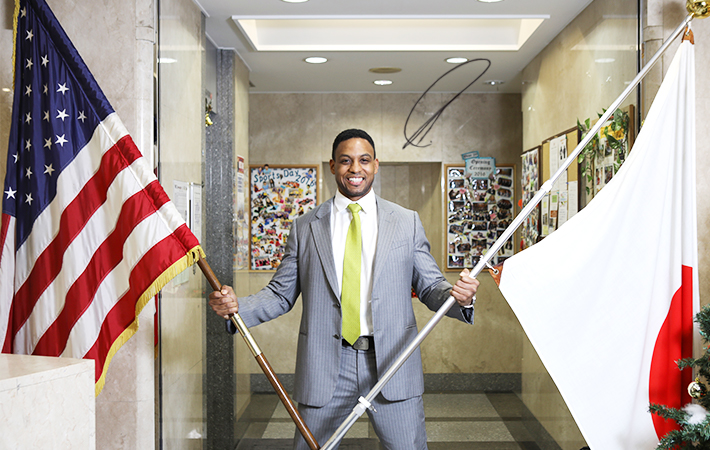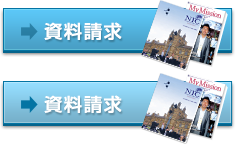第29期生メッセージ集【東京校編】
A Distinguished Title

A Distinguished Title
私のNIC での19年間。ここで様々な学生と出会い、彼らの夢・希望・体験を間近で見てきて、支えてきました。しかし、時折、互いのやりとりの中で、私が教えているもの以上のものを学生は学ぶことがあります。一つの例として、今年の11月にあった学生とのやりとりがピッタリです。
それは日本時間 11月9日の午後のことでした。私は午後クラスに行き、ドナルド・トランプ候補氏がアメリカの新しい大統領に選ばれるだろうと伝えると、学生皆、衝撃を受けていました。私自身、彼らがアメリカ大統領選挙に関心がある事に驚きましたが、「これは良い機会だ。」と思い、アメリカ大統領選挙のサイクルを詳しく掘り下げていきました。まず最初に、彼らにアメリカ大統領選挙、システム、そして今回の大統領の候補者に関して聞いてみると、驚いたことにクラス全員が、ヒラリー・クリントン氏とドナルド・トランプ氏を知っていました。それに加え、民主党候補者のバーニー・サンダース氏、共和党候補者のテッド・クルーズ氏の名前も把握していました。それから引き続き、アメリカ選挙制の基礎的なレクチャーをしつつ、ディスカッションを行い、最終的にはアメリカの選挙人団システム・2大政党システムとプラットホーム、さらにアメリカの牽制制度(立法・行政・司法の三権分立体制)をこと細かく説明しました。クラスの皆が自発的、かつ積極的に参加した予期せぬ良い授業でした。
そしてディスカッションの焦点を、次は「日本」に移しました。アメリカの政治のときとは対照的に、トピックが日本の政治になった途端、今までのクラス全体の熱気が冷めていきました。また彼らの困惑した様子から、彼らが「日本の政治に関して、全然、興味がない」、あるいは「日本の政治に関して、全くわからない」という印象を受けました。色々掘り下げて、日本の政治に関して質問をすればするほど、彼らの日本政治に関する知識がほぼゼロということがわかりました。結局、授業中に、日本政治についてアカデミックなディスカッションを行うことが出来なかったことに、少しがっかりしました。なぜ彼らが自国の政治に対して何も関心が湧かないのだろう、と考えた時、ふと自分自身が18歳の頃、アメリカの政治に全く興味がなかったことを思い出しました。
日本の政治に関してリサーチをしてくる。これはもちろん、その日の追加の宿題になりました。こんな感じで授業中、何か学生がわからないトピック・答えられないトピックがあると、リサーチが宿題になることは日常茶飯事です。今回、日本の政治に関しての宿題は、「どのようにして日本の総理大臣は選出されるか」、「日本政府の各主要機関の権限」についての300字のレポートにしました。そして次の日、彼らが提出したレポートはとても素晴らしいものでした。クラス皆が、互いにリサーチしてきたことをシェアし、ディスカッションをしました。ディスカッションの光景を見て、嬉しくなり、「みんな、こんな感じでネットを使わずに、日本に関しての質問に答えることが出来たら、君らは立派な“ 日本の文化大使”だ!」と伝えると、その「日本代表」という肩書きに、学生皆プレッシャーを感じている様子でした。しかし引き続き、文化交流・情報交換で他の国の人達がどれだけ日本について知ることができるか、そしてそれがどれだけ楽しいかを話していくうちに、彼らの不安は興奮に変わっていきました。
こんな感じの学生・先生のやりとりが、NIC 生活です。教科書だけではなく、授業中に行われる実践的な学びが、NIC が特別である理由の一つだと思います。今後、もっと多くの学生と共に学び、日本代表としての意識を高めていきたいです。もし、皆さんが、日本の文化大使としての役割に気づき、日本代表としての意識・自覚・誇りをもって、海外の大学に進学した時、本当の意味での「学び」が始まります。
グッドラック!
I am in my 19th year at NIC International College, a school that for almost two decades has allowed me the opportunity to come across scholars from many walks of life with many intriguing goals, aspirations, and experiences. Sometimes, howe ver, our interactions with each other teach me something as important as the lesson that I am trying to instill in them.
One particular example of this that I thought was worthy of sharing appeared in early November of this year.
It occurred on the afternoon of November 9th in Japan. I entered a classroom at NIC and announced that the new president of the United States would ndoubtedly become Donald Trump. The announcement brought gasps from the mouths of my students, who felt incredulous at my then very rough prediction. Surprised that they even cared about who had won, I decided to take advantage of this election cycle and probe them further. I first decided to take some time out of class to ask them questions about what they knew about the U.S. election, its system, and some of the candidates vying to become the 45th U.S. president. To my surprise, all of them knew the main candidates Hillary Clinton and Donald Trump.
However, after inquiring even further, I discovered that they were also familiar with candidates such as Bernie Sanders, the Democratic candidate who had lost out to Clinton, and even Republican candidate Ted Cruz. I then started more fielding questions from them, providing some gems of knowledge, and before I knew it I had ex plained in great detail the entire electoral college system, the two-party system and platforms, and even the checks and balances system, which covers the powers of our executive, legislative, and judicial branches. It was a great spontaneous lesson that everyone was engaged in.
And then...the discussion turned to Japan. Quite impressed and curious about what they had asked about and answered concerning the American political system, I decided to then ask about the political process in Japan. However, the interest waned somewhat and I drew some blank stares and confusion from my students, indicating that either a lack of interest had set in or that they simply had no idea how their government worked. I pressed harder but the more I pressed, the more everyone snickered and feigned (or actually possessed) a lack of knowledge about the topic. To my dismay, they just had no information to have a serious cademic discussion about politics in Japan. I thought about why and then recalled being 18 years old and not interested in politics, too. Had som eone asked me these things at their age, my expression would not have been unlike theirs.
This, of course, then became an extra homework assignment, a common tactic I like to resort to when they cannot answer my questions in class. They were to explain to me how their prime minister is elected and the various powers of Japan 's government system. I required them to write a minimum of 300 words on the topic. What I received the next day was brilliant. I collected the assignments and we talked about them in class. I then commented that they were soon to become cultural ambassadors who would be asked such questions without the benefit of being able to look up the information online. Their worried looks indicated that this distinguished title was one they didn't want to weight of carrying, but I think they generally liked the idea of being the go-to source of information about Japanese culture to someone somewhere in the future. Their worry turned to excitement as I continue to talk about how great it is to exchange information with those from another culture.
And I think this pretty much sums up life at NIC. Moments like this when the textbooks are put aside and practical learning enters the classroom are what make teaching and learning at NIC International College Japan a special. I look forward to engaging more future scholars and helping them become aware of this distinguished title they will soon bear. When everyone understands his or her special role in becoming a cultural ambassador of Japan to those encountered abroad in the U.S., the UK, and elsewhere, true learning is realized.
Good luck!

Danny K. Howard
University of Nevada, Reno MA TESOL
NIC EAP Associate Director

